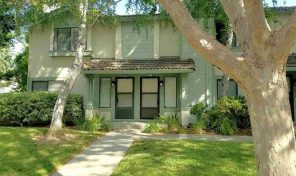Interested in getting a mortgage loan for that beautiful house located in that esteemed neighborhood amidst lush greens? Or maybe you just want to get a home because the rates are incredibly low right now and you do not want to miss this once in a blue moon chance? Whatever your reasons and needs are, before you get caught up in the mortgage loan process, keep one thing in mind.
A mortgage loan is vastly different from other loans that exist and until you are completely aware of what’s required, there is a high chance that your lender might deny your application. Though there are many factors that can lead to a no approval, the most common ones are discussed below.
Bad Credit Score
Your credit score and rating is the most fundamental factor through which a lender analyzes if you should be granted a loan or not. As you already know, it is a figure which represents how you have handled your debts in the past. Your lender uses this to determine if you are worthy enough for another loan or if you would just default on it in future.
A low score will definitely not get your application approved. For other things, your lender may compensate in some way, but for a bad credit score, there is no way that your lender will provide you with a home loan.
So before you submit that application, ensure that your score meets the requirements set by your lender. You should also avoid things that reduce your credit score such as delayed payments and loan defaults.
A Low Down Payment
No mortgage loans have ever gotten approved without a down payment that is above a certain limit. There are variations in this regard because every lender determines this limit on different basis. As such they differ with each lender, but should be at least 3.5% to 5% of the total home value. Obviously, if you can afford a higher down payment, your chances of loan approval will improve and you might be able to enjoy lower interest rates as well.
Not Getting Mortgage Pre – Approval
If you have not acquired a mortgage pre – approval prior to submitting your actual mortgage application, there is a chance that you might be denied the loan. However, if you have this document, not only will the mortgage process be simpler, but it will also help you in acquiring the loan.
Other than this, a mortgage pre – approval has other advantages as well. For instance, you are aware of your budget and you search for houses that you can afford, saving both time and money.
A High Number of Debts
While your debt balance does not exactly needs to be zero, it should still be as less as possible. Debts include all loans that you have currently availed and the amounts that you have borrowed off your credit cards. A lesser number of debts is what you need to qualify for the loan, and also for acquiring the maximum possible loan amounts.
On the track with a good credit history, an adequate amount of down payment, a mortgage pre-approval, and manageable, and well maintained and paid off debts; you will face no problems whatsoever in easily getting a loan approval.
Read more The majority of 2012 home sellers (57 percent) sold forthe very first time, the highest percentage of first-time sellers in the Survey’s history. The percentage of first time sellers increased nine percentage points from 48 percent last year, and was up 42 percentage points from its lowest level of 15 percent in 2007. The survey suggests that those who bought a few years ago, when prices were higher, are now selling.Why are people selling their homes? More than half (58 percent) claimed affordability problems such as could not afford the mortgage, moved to a less expensive market, and loss of household income as their primary reason for selling. Other reasons mentioned were job and income uncertainty (by 17percent of sellers) and being underwater (by seven percent). Owners’ reasons for selling reflect the hardships that most are experiencing in coping with a
challenging economic climate.Another indication of sellers experiencing challenging times is the fact that more than half (53 percent) currently rent their residence, compared to 47 percent who own their current residence. While more than half of all sellers are currently renting, this is an improvement from 88 percent of sellers who rented in 2011 and 58 percent who were renters in 2010.
Furthermore, sellers are not very optimistic about future home prices, only about one in five believe that
home prices will go up in 10 years. Their outlook is even more pessimistic in the short run, with 12 percent
believing prices will rise in five years, and only nine percent believing prices will rise in a year. With 74 percent of sellers having considered strategic default and 79 percent having tapped into their home equity by taking cash out, it’s no surprise that the majority feel uncertain about or have grim expectations for home prices in the future, as Exhibit 7 illustrates. This is a contrast to buyers, who mostly believe home prices will rise in the future, according to C.A.R.’s 2012 Home Buyer Survey. Sellers moved out state in record numbers in 2012—44 percent, the highest in the Survey’s history. The percentage of sellers who moved out state is up 39 percentage points from only five percent in 2004—the lowest percentage in the Survey’s history. Sellers leaving California in higher numbers comes as no surprise considering the fact that California has been experiencing negative domestic migration over the past decade, losing an average of 213,000 people a year since 2001.
-
SHORT SALE OR FORECLOSURE ? WHAT TO CONSIDER BEFORE MAKING A DECISION
With distressed properties, including foreclosures (or REOs)and shorT sales, making up about half of all single-family home sales in California in January, according to the CALIFORNIA ASSOCIATION OF REALTORS®, many underwater sellers will face the tough decision between a foreclosure or a short sale. Some of the most important factors to consider before making the decision include deficiency judgments, tax implications,credit consequences and timing.
-
DEFICIENCY JUDGEMENT AND TAX IMPLICATIONS
The good news is that California offers some protections for consumers against deficiency judgments after short sales, foreclosure. A homeowner is generally protected against a deficiency judgment after short sale for a one-to-four residential unit property. The instances in which a homeowner is generally protected against a deficiency judgment following foreclosure include, among other things, a non-judicial foreclosure or a loan that is all of the following: 1) owner-occupied, 2) secured by a one-to-four unit dwelling and 3) purchase money. Homeowners are also protected against deficiency judgments after foreclosure of seller financing.
Sellers may be responsible for taxes on, among other things, cancellation of debt (COD) income, which is approximately the difference between the outstanding loan balance and the fair market value. The exceptions to being taxed on COD income include bankruptcy, insolvency and forgiveness of a nonrecourse debt after foreclosure.
Nonrecourse debt in California is when a loan is made to purchase a one-to-four unit, owner-occupied property or when the seller carries back financing. In the case of a short sale or foreclosure, the Mortgage Forgiveness Debt Relief Act of 2007 also provides an exception from federal taxation when the following conditions are met: 1) property must be a qualified principal residence as defined, 2) loan is secured by the residence, 3) income relief is capped at $1,000,000 for married couples filing separately and $2,000,000 for all others, and 4) loan is discharged after January 1, 2007 and
before January 1, 2013. Additional rules apply under California law.
-
CREDIT CONSEQUENCES AND TIMING
Credit may be adversely affected regardless of the type of sale—foreclosure or short sale. Credit score declines can vary and the negative mark may remain on the credit report for seven years. Both foreclosures and short sales might affect the ability to quality for a loan to purchase another home. In some short sale cases where the seller may have even been current with mortgage payment sold the home for less than the outstanding loan amount, the credit report could indicate that the debt was settled for less than what was owed and the impact may be less severe. In the event of a foreclosure, a borrower may not be able to qualify for another home loan for seven years without any extenuating circumstances, or five years with extenuating circumstances, under current Fannie Mae guidelines Wait may be less with short sales. If payments are in arrears in a short sale, buyers may qualify to purchase another home within about two years for a Fannie Mae backed mortgage, or approximately three years for a FHA loan. If payments were current, consumers may qualify for another loan immediately, but it can be difficult to find a lender. Exceptions and additional considerations apply to the conditions discussed, depending on individual circumstances. For consumers facing these difficult choices, it is advisable to seek professional assistance from an attorney and/or an accountant who can evaluate your specific situation.
Read more





